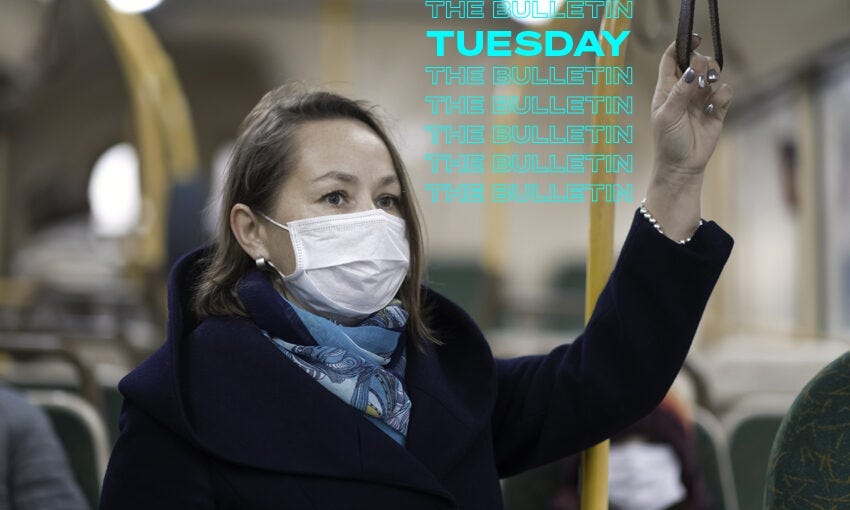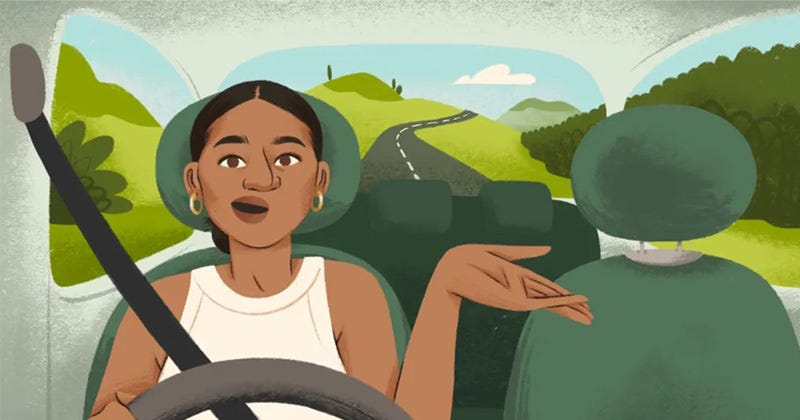The start of omicron’s second wave
Hospitalisations are at their highest since April and experts say the more transmissible BA.5 omicron subvariant will be the dominant strain in New Zealand in a few weeks.
Mōrena and welcome to The Bulletin for Tuesday, July 5, by Anna Rawhiti-Connell. Presented in partnership with Z Energy.
In today’s edition: serious allegations made in Christchurch stadium report; $140m in subsidies to Avatar films so far; Wairoa fights back; but first, the second wave looks to be upon us.
The BA.5 omicron subvariant is expected to become the dominant strain in a matter of weeks. (Photo: Getty Images)
The second omicron wave looks to be here
As Toby Manhire writes on The Spinoff this morning, “whether or not we want to hear it, ‘post-Covid’ is a misnomer.” Manhire looks at the factors driving the resurgence and what we can do about it and has spoken with Covid modelling expert Michael Plank who says, “broadly speaking it is very likely that we are at the start of a wave”. There were 6,498 new infections reported yesterday with experts saying the new wave is being triggered by the BA.5 subvariant which they expect to become the dominant strain in a matter of weeks. Cases have doubled in Tairāwhiti in the last fortnight. The seven-day rolling average of community cases sits at 7,046 up by almost 2,000 from a week ago. Hospitalisations due to Covid are the highest they’ve been since April, when the seven-day rolling average was between 14,147 and 7,413 across the month.
Reinfections likely in shorter time frames
Epidemiologist Michael Baker told RNZ that the surge in infections suggested the next omicron wave was coming and that reinfections within much shorter time frames may become the norm. "You can get reinfected within three weeks, and this is getting very common. Unfortunately, every time you get this virus, you face all the same problems," he said. The government recently reduced the testing and isolation timeframes for reinfections but has not changed the isolation requirements to match new research that suggests half of omicron cases are still infectious after eight days.
Is a return to red on the cards?
As Newsroom’s Marc Daalder writes, a second omicron wave will pose tough questions for a government eager to put the pandemic behind it. Traffic light settings were reviewed just last week and it was decided we would remain at orange. Daalder questions whether a move to red would make a significant difference, saying rule changes at the highest setting of the traffic light system aren’t that different, beyond a mask mandate in schools and gathering limits of 200 at indoor events. I’d hazard a guess and say that it may not make a difference to the spread of the new variant but any such move would feel highly consequential to New Zealand’s event, hospitality and cultural sectors.
Pfizer and Moderna given nod to work on omicron-specific boosters in US
New Zealand isn’t the only country facing a surge in Covid cases connected to the BA.4 and BA.5 subvariants. The Office for National Statistics (ONS) in the UK estimates that Covid infections there soared by more than half a million in a week at the end of June, driven by the subvariants. Case numbers remain relatively stable in the US but BA.5 accounted for 36.6% of the country’s reported Covid cases for the week ending June 25 with one New York-based epidemiologist calling BA.5 “the most transmissible Covid strain we’ve ever seen”. The Food and Drug Administration’s (FDA) vaccines committee has recently voted to support recommending inclusion of an omicron-specific booster vaccine. Pfizer and Moderna are both developing boosters based on omicron’s BA.1 and BA.2 subvariants.
In 2021, 325 people were killed on New Zealand roads. Those numbers are not statistics; they’re sons and mums, aunties and cousins, and it’s a toll we shouldn’t have to pay. Road to Zero is the government’s plan to build a safer road system with a target of zero road deaths and serious injuries by 2050, with a 40% reduction by 2030.
Learn more about Road to Zero in a new comic on The Spinoff. (Sponsored)
Report reveals serious allegations about stadium’s governance and budget
Consultation on whether Christchurch’s planned stadium gets built close today. The council has received 25,500 submissions so far. Consultation was opened to the public after it was determined that the stadium’s projected cost had risen from $533 million to nearly $700m. BusinessDesk’s Oliver Lewis reports that serious allegations have been made about the stadium’s governance, budget and systems by the project’s former director in a newly unearthed report. Lewis writes that the report was not passed on to Christchurch city councillors, meaning they were ignorant of its contents when they voted last August to increase the project budget by $50 million to $533m to ensure the arena, now called Te Kaha, had 30,000 seats.
Avatar rebates second largest in film commission’s history
Newstalk ZB’s Jason Walls reports that the more than $140 million worth of film subsidies have been paid so far to help produce the upcoming Avatar sequels. The Act party wants the Government to immediately stop providing subsidies to studios producing movies in New Zealand. Film commission acting chief executive Mladen Ivancic said the grants support thousands of jobs every year, whilst also creating economic benefits across industries including accommodation, tourism and technology. For a long read on our film subsidy scheme, I recommend Madeleine Chapman’s October 2021 feature for North and South. It’s estimated that New Zealand could spend between $200–250 million on the Avatar sequels, more than the government’s entire 2020 budget allocation for transitional housing ($150 million).
A vital message from The Spinoff’s publisher, Duncan Greive:
If you’re reading this, you’re hopefully getting value out of The Spinoff. Yet like many publishers, we’ve suffered a significant drop in members, despite our costs continuing to increase. On one level I understand why our membership has dropped away. As the cost of living has reached new heights and the pandemic has become less of an urgent news event and more of a part of day-to-day life, it’s totally normal to feel like you don’t need to support your local media organisation.
The promise we’re making to you is that we’re actually better suited to times like this than the pandemic itself. Of course we will continue to write about Covid-19 and the many effects it’s having on society, but our plan now is to return to something more of what made us, which is coverage of culture, politics, business, te ao Māori and more with heart and humour.
But we can’t do it without you. We need your support more than we ever have. So please, if you can, click here to support The Spinoff by becoming a member today.
Wairoa: where locals are now "believing in themselves"
I always think it must be tough to love living somewhere and be committed to your community, only to have it somewhat tarred as being plagued by gangs or drug problems. It’s why I'm recommending this story from the Herald’s Neil Reid (paywalled) on Wairoa. In a police press release in February, detective inspector Dave de Lange noted that “more methamphetamine is detected in Wairoa's wastewater per capita than in any other region in New Zealand”. Reid spoke to locals who don’t deny there’s a problem but also report that the town is “thriving, not dying” with population growth up and groups like Nannies Against P helping create positive change. I haven’t been to Wairoa for a while but the pies at Osler’s were outstanding and the locals were extremely warm and friendly.
Got some feedback about The Bulletin, or anything in the news? Get in touch with me at thebulletin@thespinoff.co.nz
Of all the weekend's great sporting performances, one athlete and his code in particular encapsulated a vision of our sporting future. Duncan Greive explains why Israel Adesanya and the chaotic, hyper-commercial UFC set the blueprint for the future of professional sports. Chris Schulz reveals the surprising reason frozen chicken nuggets are so hard to find right now. Alie Benge stands up for the new Persuasion adaptation on Netflix, the trailer for which has got Jane Austen fans up in arms. Speaking of, disgruntled Sistema users are up in arms over the plasticware brand's new lids.
First New Zealander in 68 years reaches quarterfinals of women’s doubles at Wimbledon
Erin Routliffe and her partner Alicja Rosolska won 6-4 7-6 against fifth seeds Asia Muhammad and Ena Shibahara to go onto the quarter finals at Wimbledon. They will meet American pair Danielle Collins, who was the 2022 Australian Open singles runner-up, and Desirae Krawczyk. As Stuff’s David Long reports, New Zealand pair Heather Robson and Judy Burke made it to the last eight at Wimbledon in 1954, losing to American players Shirley Fry and Doris Hart.
The golden age of retirement is now increasingly one of caregiving
The feature for today is from Sarah Catherall who has written about the “sandwich generation” for North and South. The term applies to what was a temporary mid-life squeeze of caring for both younger children and ageing parents. Now, those years are broadening and for many New Zealand families, retirement plans are being impacted by the needs of older kids and geriatric parents.











